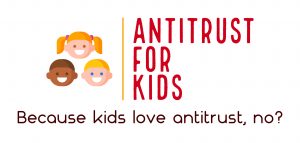Authors: Molly Donovan & Aaron Gott
A Missouri jury awarded a class of home sellers $1.8 billion dollars in finding that the National Association of Realtors (“NAR”) and some of the nation’s largest real estate brokerages “conspired to require home sellers to pay the broker representing the buyer of their homes in violation of federal antitrust law.”
At the center of the case was NAR’s rule requiring sellers to pay a non-negotiable commission awarded to the buyer’s broker at a transaction’s closing (“Mandatory Payment Rule”). The brokerages then compelled their agents to belong to the NAR and adhere to the NAR’s rules. The resulting lack of competition for buy-side commissions caused inflated prices that were forced upon home sellers. Every brokerage in the industry understood that every other brokerage was behaving in this same way.
In addition to inflated buy-side rates, the scheme was reinforced by other anticompetitive practices, including “steering”—where buyer brokers “steer” their clients toward homes attached to a non-negotiable buy-side commission—as opposed to homes for-sale-by owner where an automatic buy-side commission may not be offered.
Another resulting problem is that small brokerages looking to attract buyers have a tough time competing. Most importantly, there’s no opportunity to compete on price because the local NAR groups have locked prices in with the following of the major brokerages. Because of that rule—and other NAR rules—innovations with respect to process or pricing have been very difficult to achieve.
So, why has the scheme worked if it’s so bad for consumers and innovators? Because the NAR has near-exclusive control over the MLS or multiple-listing service.
The MLS is an essential database for listing homes because most homes sold in the United States are found there. If a broker does not belong to NAR and/or does not follow the NAR’s rules, it cannot access the MLS and, therefore, cannot effectively compete for selling or buying clients.
This is of antitrust concern in its own right. And certainly, the Mandatory Payment Rule is not the only rule in the industry that has—or could—draw antitrust scrutiny. Rules against buying/selling homes that are “coming soon,” for example, are also restraints of trade that could be a problem. So are rules that fix any of the terms or conditions of selling or buying a home.
Many predict the entire industry will change as a result of the Missouri verdict, the ongoing competition-law litigations and investigations, and the reality that today, home buyers can do their own legwork to find homes without needing a broker’s access or market knowledge. A buyer broker’s role can sometimes be relegated to accessing lock boxes, providing fill-and-sign access to standard forms, and collecting the check.
So what can a brokerage do now to anticipate the changes and guard against future antitrust concerns? Here is some high-level guidance that brokerages ought to consider:
 The Antitrust Attorney Blog
The Antitrust Attorney Blog






